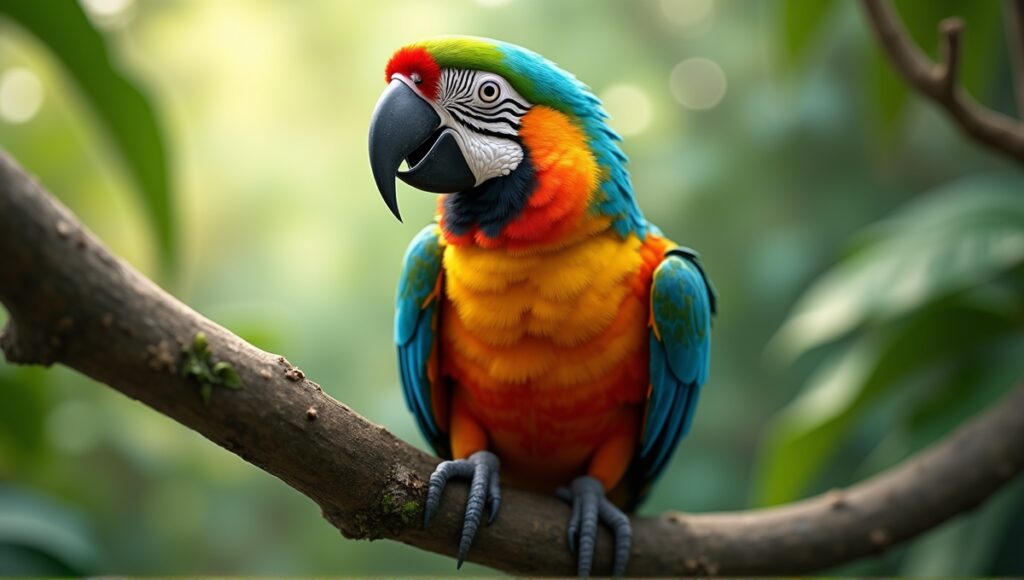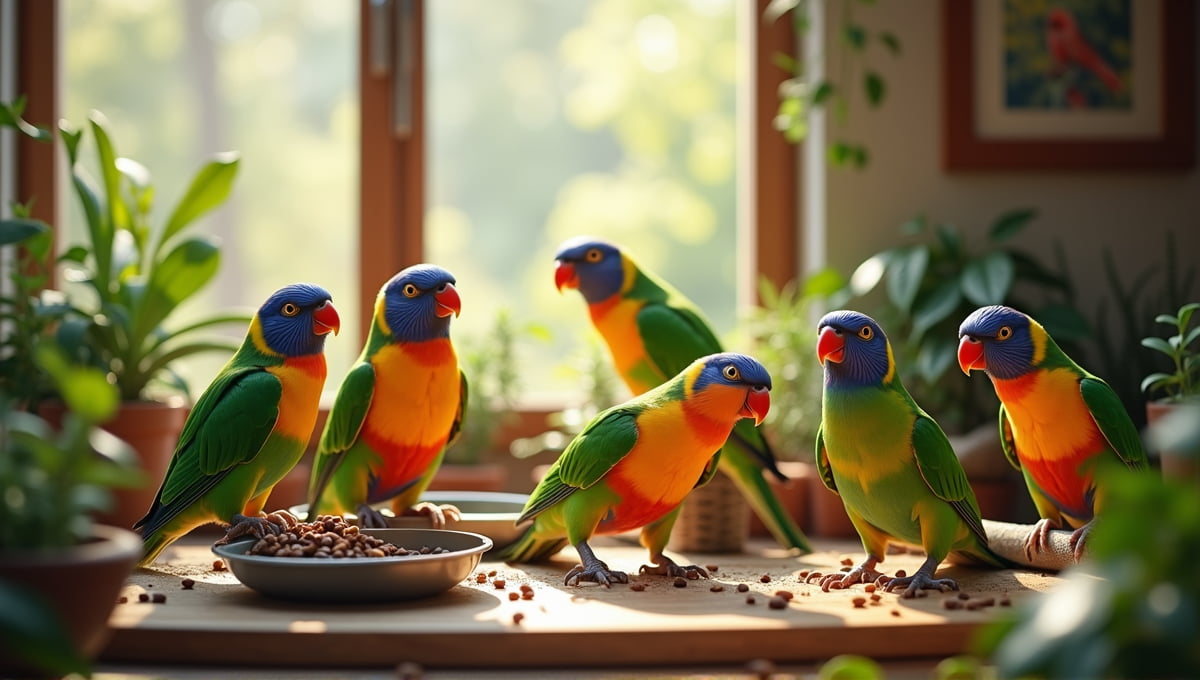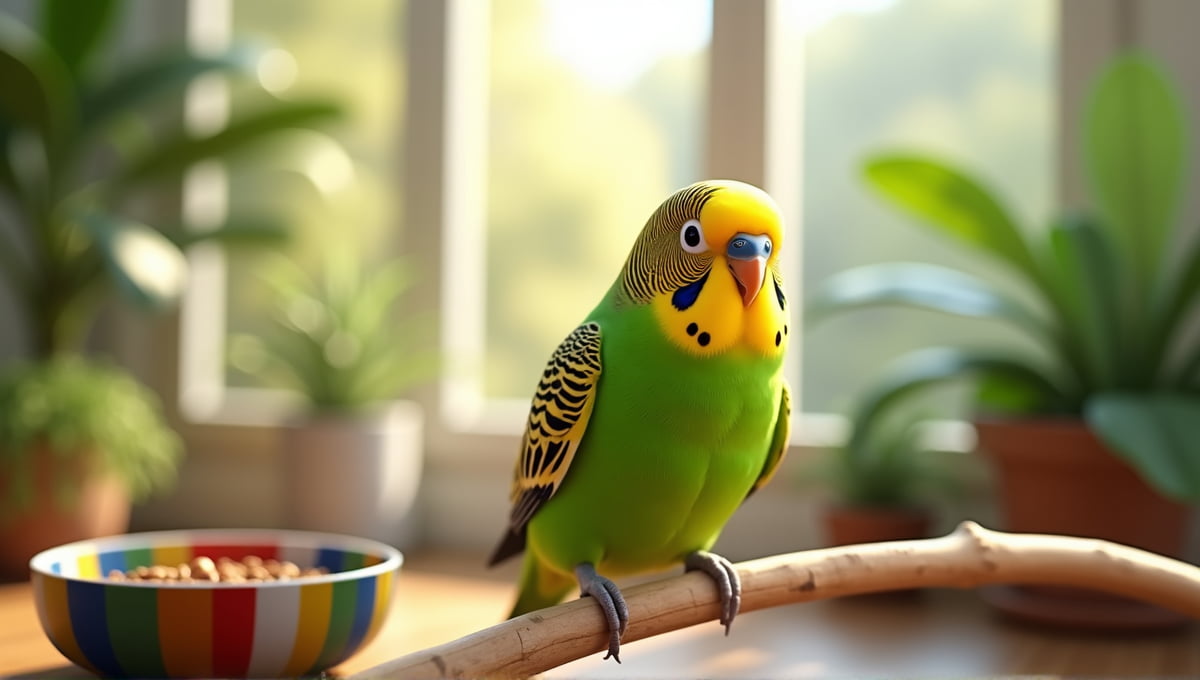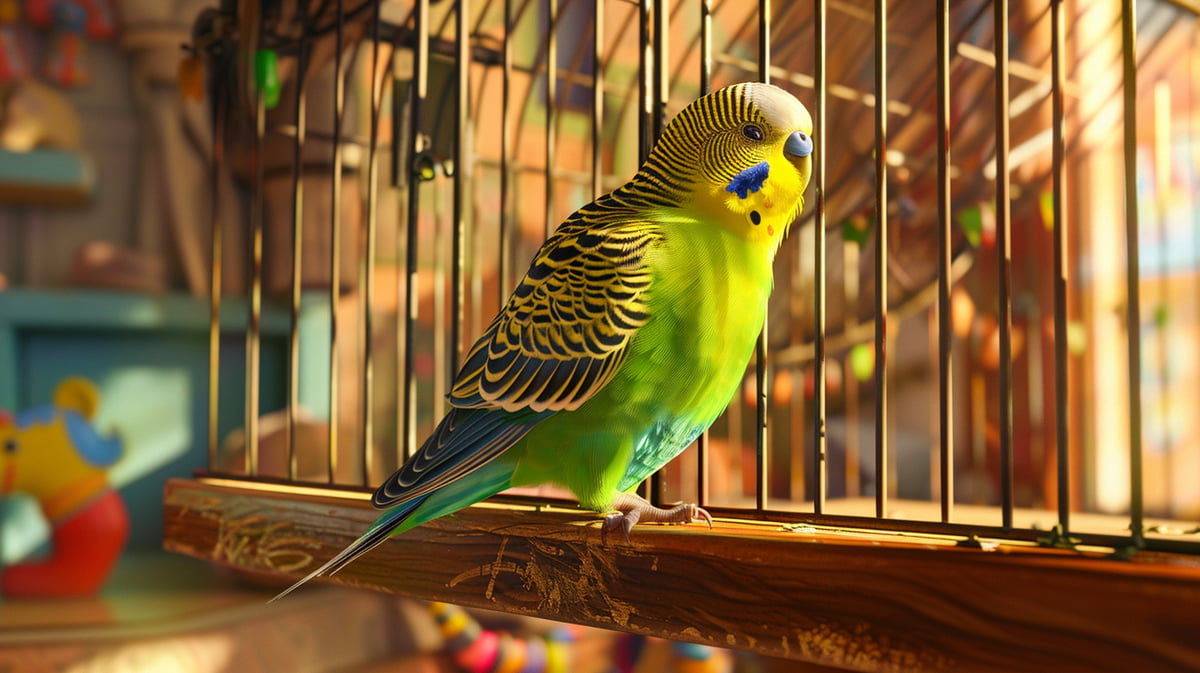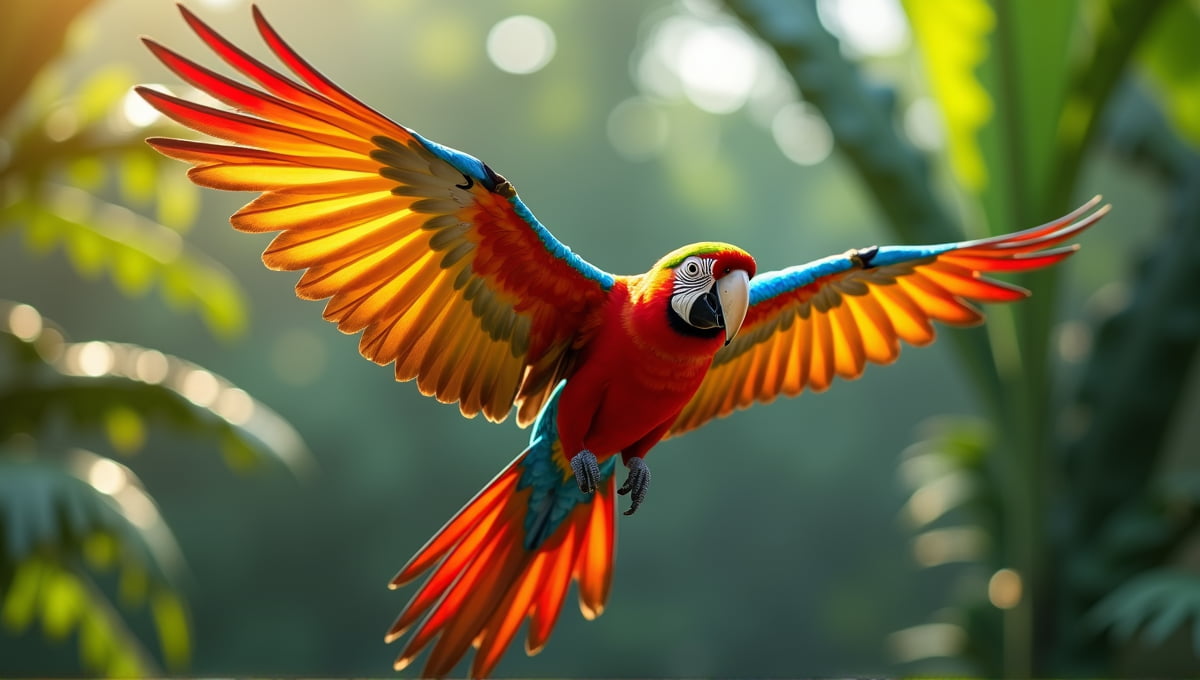As a leading authority on bird behavior, I’ve studied thousands of parrots, and each one has had its own unique personality that influences how it interacts with humans and other birds. You’d be amazed at the level of personality these birds have. African Greys, for example, are excellent problem solvers, while Budgerigars are highly social birds. In short, parrot personalities are just as varied as they are interesting. So let’s take a look at how these birds differ in personality, intelligence, and social requirements.
Understanding Parrot Personalities
Parrots are incredibly interesting animals with individual personalities. I have dedicated years to studying these colorful birds and their behaviors. A parrot’s personality is influenced by genetics environmental factors, and individual experience. Consequently, each bird has its own combination of personality traits.
Many people mistakenly assume all parrots are loud and friendly. This isn’t really true. Some are quieter and more independent than others. There’s also a wide range of individual variation within species. For example, you can find African Greys that are shy and those that are very outgoing.
The most common personality traits you’ll find in parrots include:
- Intelligence
- Curiosity
- Playfulness
- Affection
- Stubbornness
- Moodiness
- Possessiveness
Parrots can exhibit many different emotions and behaviors. Knowing these traits will enable you to better care for the parrot. It’s also important to remember that each parrot is unique, and its particular combination of personality traits may surprise and delight you.
For those looking to adopt a parrot, understanding parrot lifespan is crucial for making a responsible choice.
Sociability in Parrots
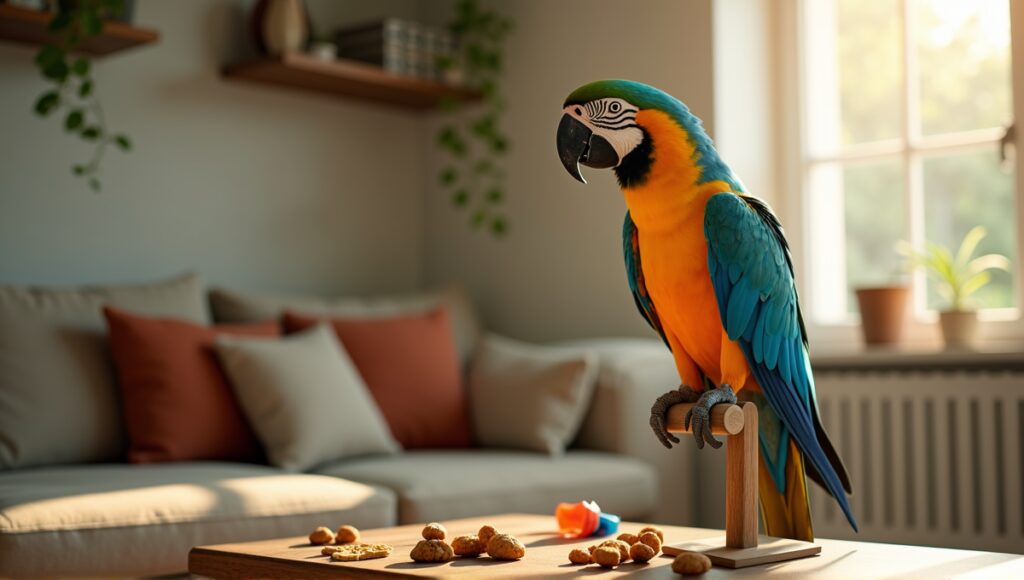
Parrot species are diverse in their social needs. Some require nearly constant companionship, while others may be more independent. Through my research, I’ve learned that sociality in parrots is a spectrum.
Macaws and cockatiels are excellent examples of very social parrot species. They often form strong attachments to their human owners. African Greys are a bit less social, but they still enjoy human companionship. Amazons are another example of a parrot that is somewhat social, though they can also be quite territorial.
How can you tell if a parrot is social?
- It seeks you out for attention.
- vocalizes to receive attention from you.
- It enjoys physical contact with you.
- shows interest in what the family is doing.
- It plays with toys while in the same room as people.
Very social parrots will always want to be around their owner. They directly require daily attention from you, which can be overwhelming for some owners. If you don’t plan to devote much time interacting with a parrot, avoid these species. Failing to meet these needs can result in the parrot developing behavioral issues.
Parrots form bonds and attachments differently with humans than they do with other birds. Some only want to be around humans, while others only feel fulfilled in a flock of other birds. Understanding the species of your parrot is critical to providing the right social environment.
For many, pet bird toys are essential for keeping parrots entertained and engaged.
Intelligence and Problem-Solving Abilities
Parrots are famous for their intelligence. I’ve personally witnessed many examples of their problem-solving abilities in the wild and in captivity. They can solve complex puzzles, learn human languages, and even use tools.
However, not all parrot species are equally intelligent. African Greys are considered one of the most intelligent bird species and have even demonstrated an understanding of abstract concepts. Macaws and Amazons are also highly intelligent birds.
Here’s a general ranking of intelligence levels across common parrot species:
| Species | Intelligence Level |
|---|---|
| African Grey | Very High |
| Macaw | High |
| Amazon | High |
| Cockatiel | Moderate |
| Budgerigar | Moderate |
Parrots require mental stimulation to be happy. Without mental stimulation, they become bored and develop behavioral problems. To prevent this, give your parrot:
- puzzles
- toys
- training exercises
This challenges their mind.
In the wild, parrots use their problem-solving skills to find food. They’ll figure out how to reach food that other animals can’t access. In captivity, this might translate to:
- opening cage latches
- accessing treats you thought were hidden
Their ability to solve problems is truly remarkable.
For those interested in the right toys to support this mental stimulation, check out information on parrot toys that can keep them engaged.
Vocalization and Communication
Parrots are noisy animals with an excellent ability to communicate. Each species produces its own set of vocalization. Some species, like the African Grey and Amazon, are specifically famous for their talking ability, while others, like the Cockatiel, have a diverse set of whistles and chirps.
Parrot vocalizations serve many purposes:
- Emotion expression
- Alerting to dangers
- Seeking attention
- Claiming territory
- Communicating with other flock members
Fascinatingly, wild parrots develop regional dialects, which demonstrates their capacity for cultural learning. Pet parrots may also incorporate sounds from their environment, including common household noises.
Noise level is an aspect you should carefully consider when selecting a parrot species. Macaws and Amazons are great examples of very loud parrots, whereas Cockatiels and Budgerigars are some of the quieter options. Consequently, managing noise levels is one of the biggest challenges with parrots.
To communicate effectively with your parrot, you must understand what its vocalizations mean. For example, a parrot might softly chirp when it’s content and happy, and a parrot might scream or hiss when it’s angry or nervous. Understanding these vocalizations will help you meet your bird’s needs.
For those who appreciate talking birds, pet birds that talk are fascinating companions that add an extra dimension to pet ownership.
Trainability and Adaptability
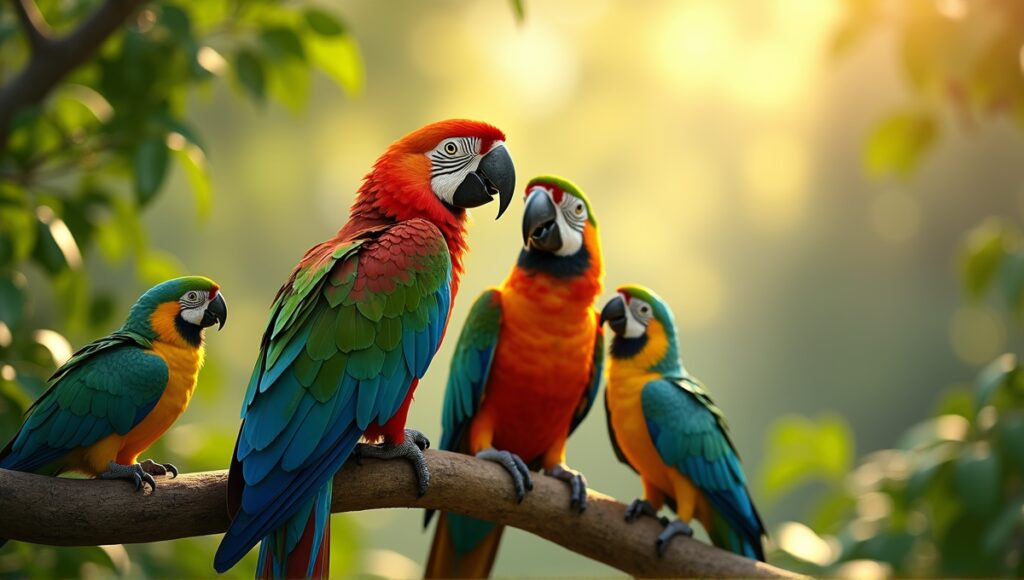
Parrots are one of the most trainable birds because they’re intelligent and curious, so they’re eager to learn new behaviors. However, trainability will depend on the individual bird’s personality and species of parrot.
Trainability factors for parrots:
- Age
- Past experiences
- Trust with the trainer
- Motivation (typically food)
- Consistency in the training method
There are a few different training methods you can use with a parrot, including positive reinforcement or clicker training. These allow the parrot to learn through a rewards system. Punishment methods don’t work and can ruin your relationship with your parrot.
Parrots are adaptable creatures, so they can adjust to new environments and routines. However, some species may take longer than others, and it may take some parrots weeks before they feel comfortable in a new home.
Each parrot personality will present different training challenges. A timid parrot will require more patience and gentle encouragement, while a very confident parrot will test the boundaries more often. Therefore, just adapt your approach based on what your specific parrot needs.
Helpful training tips:
- Keep training sessions short and enjoyable.
- Use their favorite treats as rewards.
- Always use the same command.
- End on a high note.
- Always pay attention to their body language.
Just remember training is a continuous process that helps build a deeper bond and provides mental stimulation for your parrot. So enjoy the process of learning with your bird.
Parrots also thrive with engaging activities, including pet bird for beginners that can make the transition easier for new owners.
Emotional Complexity in Parrots
Parrots have a complex emotional life, and I’ve observed this over the years. They experience a range of emotions, from happiness to sadness, anger, and even jealousy. It’s important to understand their emotional needs to keep them healthy.
Emotional states are easy to identify in parrots, including:
- Happy: Relaxed body language, soft vocalizations, and preening.
- Anxious: A raised crest, dilated pupils, bouncing, or dancing.
- Stressed: Feather plucking, a stiff body, and screaming.
- Affectionate: Gentle head bobbing and seeking close contact.
- Angry: Raised feathers, beak clicking, and fanned tail.
Parrots form a strong emotional bond with their owner, and this can be a blessing and a curse. You may become the single focus of your parrot’s life, and that means it’s your responsibility to meet their emotional needs.
Each parrot has a unique personality, and you need to become the emotional support they require. A confident parrot might not need as much reassurance, while a shy or nervous bird might need more gentle interaction to feel secure. Understand the specific emotional needs of your parrot and provide the level of care they require.
Emotional neglect can also result in behavior problems in parrots, so make sure you provide adequate socialization, enrichment, and affection to keep your parrot emotionally stable and happy.
Comparing Personalities of Popular Parrot Species
Each species of parrot has its own general personality traits. However, keep in mind that individual parrots can differ significantly from these general descriptions.
| Species | Key Personality Traits |
|---|---|
| African Grey | Intelligent, reserved, sensitive |
| Macaw | Outgoing, playful, loud |
| Cockatiel | Gentle, affectionate, relatively quiet |
| Amazon | Energetic, talkative, sometimes temperamental |
| Budgerigar | Social, active, good for beginners |
African Greys are often considered the brains of the parrot family. They’re admired for their remarkable intelligence and ability to mimic speech. African Greys tend to be more reserved and may be sensitive to changes in their surroundings.
Macaws are the life of the party. Macaws are large and colorful with a playful personality, and they are loud. They bring a lot of energy to a home.
Cockatiels are sweet and gentle. Cockatiels are known for being affectionate and are relatively quieter birds. They’re a favorite pet bird due to their mild temperament.
Amazons are lively performers. Amazons are famous for their speaking abilities and often have big personalities. Some can be a bit temperamental, particularly during breeding season.
Budgerigars, also known as budgies, are social little birds. These small parrots are active, playful, and require less care than other parrot species. They are a great bird for small birds pets due to their friendly nature and lower maintenance needs.
Matching Parrot Personalities with Owner Lifestyles
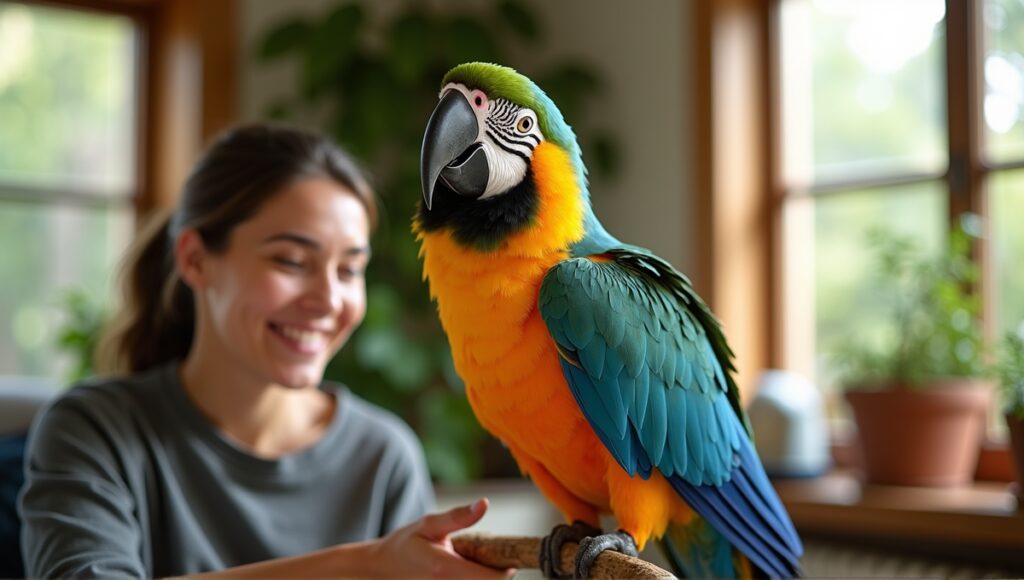
Selecting the right parrot for your lifestyle is key to ensuring your happiness and the happiness of your parrot. Consider the following when choosing a parrot:
- How much time you have to interact with the parrot.
- How much noise you can tolerate.
- How much space you have in your home.
- Your experience level with birds.
- How long you’re willing to commit to the parrot (as many parrots live for several decades).
Common mistakes people make when selecting a parrot include:
- Choosing based on looks.
- Underestimating the parrot’s needs.
- Failing to thoroughly research the species.
- Making impulse purchases.
I’ve been a part of many great parrot and parrot owner matches. One that comes to mind is a retired teacher who adopted an African Grey. She had the patience and willingness to learn that the bird needed, and the African Grey was a perfect match because it’s one of the most intelligent parrots and requires a lot of mental stimulation.
Another great match was a young, active couple who adopted a pair of budgies. The budgies are a great match for them because they’re social and require less maintenance than some other parrots.
The most important factors in parrot and parrot owner matches are:
- Energy levels.
- Noise tolerance.
- Time the owner has to spend with the parrot.
- Desire for interaction.
- Long-term commitment.
Remember parrots are a long-term commitment. Selecting the right parrot will ensure you have an interesting companion for many years to come.
Wrapping Up
Parrots are complicated animals with their own set of personality quirks. Therefore, it’s important to learn about their general characteristics before you experience parrot ownership success. Parrots vary in sociability, intelligence, and emotional needs. Additionally, it’s vital to match the right parrot with your daily life. After all, a carefully chosen parrot friend will provide you with many years of happiness and fulfillment.
Over the years, my experience has taught me that parrots require patience and regularity. While it may take a little time upfront, you’ll build a stronger relationship and deeper bond with your parrot if you take the time to understand each parrot’s unique personality.


